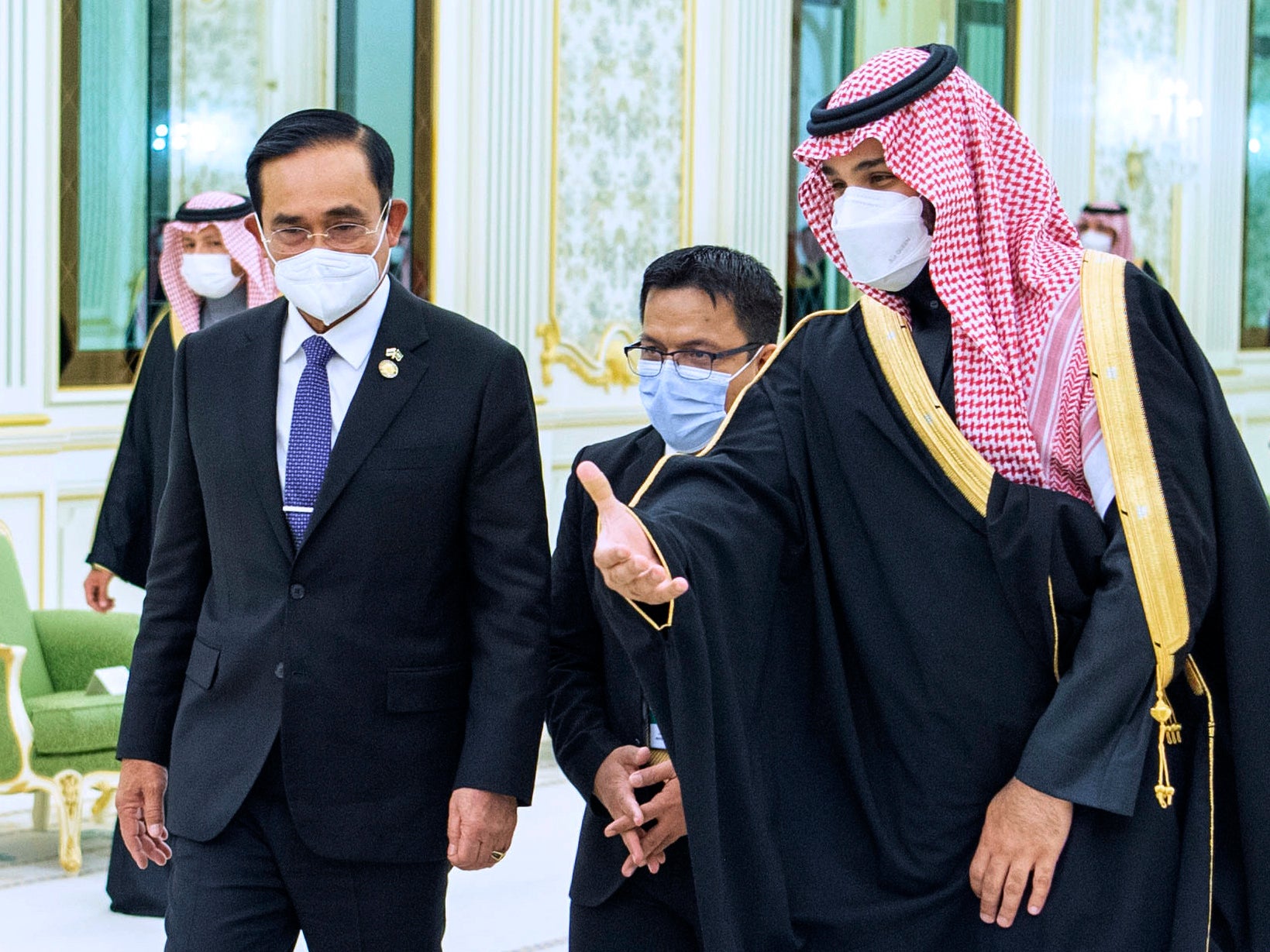Thai PM visits Saudi Arabia three decades after diamond heist row
First state visit in more than 30 years seeks to repair relations soured by a sensational jewellery heist

Your support helps us to tell the story
From reproductive rights to climate change to Big Tech, The Independent is on the ground when the story is developing. Whether it's investigating the financials of Elon Musk's pro-Trump PAC or producing our latest documentary, 'The A Word', which shines a light on the American women fighting for reproductive rights, we know how important it is to parse out the facts from the messaging.
At such a critical moment in US history, we need reporters on the ground. Your donation allows us to keep sending journalists to speak to both sides of the story.
The Independent is trusted by Americans across the entire political spectrum. And unlike many other quality news outlets, we choose not to lock Americans out of our reporting and analysis with paywalls. We believe quality journalism should be available to everyone, paid for by those who can afford it.
Your support makes all the difference.Thailand’s prime minister has arrived in Saudi Arabia for the first high-level meeting since relations between the nations soured three decades ago over a scandalous jewellery heist that led to a diplomatic row and string of mysterious killings.
The official visit by Thai premier Prayuth Chan-ocha to Riyadh indicates that the countries are looking to mend relations. Saudi Arabia downgraded its diplomatic ties with Thailand over the 1989 theft which became known as the Blue Diamond affair.
However, Saudi Arabia seemed to make little effort in receiving Mr Chan-ocha as a notably low-ranking official, the deputy governor of Riyadh, greeted him at the airport. There was also no live TV showing his arrival and Saudi state-run media published just a few photos of his initial palace meeting with deputy governor Mohammed bin Abdulrahman bin Abdulaziz.
Nevertheless, the Thai prime minister was later met for talks by crown prince Mohammed bin Salman.
The Saudi government’s statement about the visit was vague, saying only it showed the kingdom’s “keenness to strengthen joint relations and build bridges of communication with all countries around the world.”
The Blue Diamond affair is based on the disappearance of $20m (£14.8m) worth of gems and jewellery from a Saudi prince at the hands of a Thai cleaner. A 50-carat blue diamond was believed to be among the stolen loot and has sparked a deadly feud between the countries.
As a result of the conflict, the Saudi kingdom stopped issuing and renewing visas for hundreds of thousands of Thai workers, suspended permits for thousands of Thai Muslims hoping to make the annual hajj pilgrimage to Mecca, and warned its citizens not to travel to Thailand.
Three Saudi diplomats seeking the valuables’ return were shot dead in Bangkok in 1990. A Bangkok-based Saudi businessman believed to have been hunting for the missing jewels also disappeared in 1990, and has not been seen since - it’s widely believed he murdered. However, no one was convicted for the killings.
The Thai police claimed to have solved the case, but many of the jewels they sent back to Riyadh were fake. To the shock of Saudi officials, Thai media carried reports that the wives of top officials had been spotted wearing the diamond necklaces that bore an uncanny resemblance to the stolen jewels. The iconic blue diamond was never recovered.
The scandalous episode exposed the abuse of power running rampant in Thailand’s police forces as speculation grew that senior offices and members of the powerful and the elite had kept the stones and ordered a cover-up.
Thailand, deprived by the dispute of billions of dollars in badly needed tourism revenues and workers’ remittances, has long wanted to patch up relations with oil-rich Saudi Arabia.
The crown prince Mohammed bin Salman, 36, has increasingly focused on building allies abroad and mending rifts with regional rivals, including Iran, Qatar, Turkey and Pakistan.
Saudi Arabia, in a push to modernize and diversify its economy away from oil, is trying to draw foreign tourists and investors and overhaul its reputation as one of the world’s most closed countries with a bleak human rights record.
Additional reporting by AP
Join our commenting forum
Join thought-provoking conversations, follow other Independent readers and see their replies
Comments